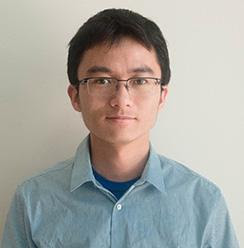CSE/CNS Ph.D. Student Accepts Tenure-Track Faculty Position at Johns Hopkins

As more postdoctoral researchers and Ph.D. candidates make the rounds of universities in the market for new faculty in computer science, computer engineering or bioinformatics, another CSE soon-to-be-graduate is headed to teach and do research in computer science at Johns Hopkins University.
Peng (Ryan) Huang recently cut short his tour of potential employers when, just two days after interviewing at Johns Hopkins, its CS department offered him a tenure-track faculty position. He ended up canceling interviews on several other campuses. Huang is set to graduate this year, but he has decided to do a postdoctoral fellowship prior to taking up residence at Johns Hopkins in Fall 2017. (He is still deciding where to do his postdoc.)
It appears that Johns Hopkins found in Huang someone who could help build a new area of strength for its Computer Science department. His research area is computer systems. “I’m particularly interested in understanding growing problems in real-world systems and reflecting that understanding in new techniques to improve system reliability,” said Huang, whose advisor is CSE Prof. Yuanyuan (YY) Zhou.
In his dissertation, Huang analyzes the distinctive characteristics of failures in industrial-strength cloud systems. Motivated by those findings, he then tackled a common source of failures in the cloud: configuration errors. To tackle those errors, Huang designed a specification language and a framework by which to validate configuration for cloud-scale systems efficiently. “Thanks to Prof. Zhou and UCSD,” he said, “I had opportunities to conduct many of my research projects in a practical setting by collaborating with leading companies, including Microsoft, Teradata, and Facebook.”
